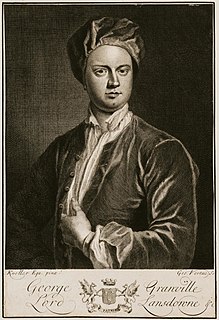A Quote by Jonathan Swift
In all I wish, how happy should I be,
Thou grand Deluder, were it not for thee?
So weak thou art that fools thy power despise;
And yet so strong, thou triumph'st o'er the wise.
Related Quotes
Art thou in misery, brother? Then I pray Be comforted. Thy grief shall pass away. Art thou elated? Ah, be not too gay; Temper thy joy: this, too, shall pass away. Art thou in danger? Still let reason sway, And cling to hope: this, too, shall pass away. Tempted art thou? In all thine anguish lay One truth to heart: this, too, shall pass away. Do rays of loftier glory round thee play? Kinglike art thou? This, too, shall pass away! Whate'er thou art, wher'er thy footsteps stray, Heed these wise words: This, too, shall pass away.
Oh, thou did'st then ne'er love so heartily. If thou rememb'rest not the slightest folly That ever love did make thee run inot, Thou has not loved. Of if thou has't not sat as I do now, Wearying they hearer in thy mistress's praise, Thou has not loved. Of if thou hast not broke from company Abruptly, as my passion now makes me, Thou has not loved. (Silvius)
Both in thy private sessions, and the universal assizes, thou shalt be sure of the same Judge, the same jury, the same witnesses, the same verdict. How certain thou art to die, thou knowest; how soon to die, thou knowest not. Measure not thy life with the longest; that were to piece it out with flattery. Thou canst name no living man, not the sickest, which thou art sure shall die before thee.
O innocence, how glorious and happy a portion art thou to the breast that possesses thee! thou fearest neither the eyes nor the tongues of men. Truth, the most powerful of all things, is thy strongest friend; and the brighter the light is in which thou art displayed, the more it discovers thy transcendent beauties.
If any friend desire thee to be his surety, give him a part of what thou hast to spare; if he press thee further, he is not thy friend at all, for friendship rather chooseth harm to itself than offereth it. If thou be bound for a stranger, thou art a fool; if for a merchant, thou puttest thy estate to learn to swim.
What thou lovest well remains, the rest is dross What thou lov'st well shall not be reft from thee What thou lov'st well is thy true heritage Whose world, or mine or theirs or is it of none? First came the seen, then thus the palpable Elysium, though it were in the halls of hell. What thou lovest well is thy true heritage.
If thy desire to raise thy fortunes encourage thy delights to the casts of fortune, be wise betimes, lest thou repent too late; what thou gettest, thou gainest by abused providence; what thou losest, thou losest by abused patience; what thou winnest is prodigally spent; what thou losest is prodigally lost; it is an evil trade that prodigally drives; and a bad voyage where the pilot is blind.


































